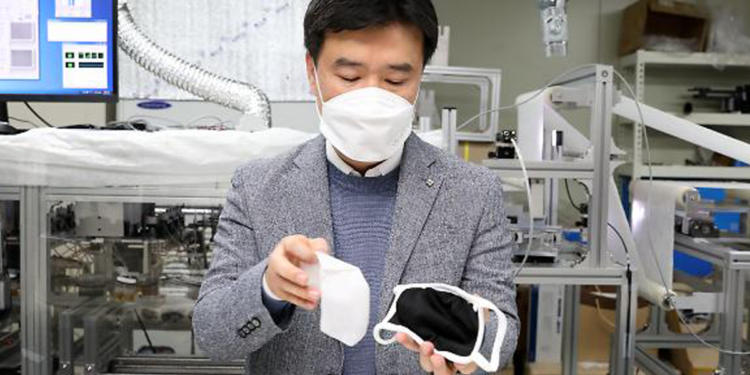A team of South Korean scientists from the Korea Advanced Institute of Science and Technology (KAIST) announced Monday that the institute developed a reusable mask which could retain its efficiency even after multiple washing and use.
The team of researchers led by Kim Il-doo developed a nanofiber filter for face masks using an “Insulated Block Electrospinning (IBE)” method. The IBE method allows nanofibers to intersect or align at right angles in a cross-shaped pattern.
As the country struggles with a supply shortage of protective masks, researchers paid much attention to whether the new mask filter can withstand repeated use. The spread of coronavirus has made medical supplies, such as face masks, scarce for medical personnel.
The existing and widely used filters are melt-blown and non-woven with randomly intertwined fibers and varying pore sizes. The structure requires multiple overlaid screens to block even small particles. Also, the efficiency of the filters decreases considerably when washed or worn numerous times.
The new filter developed in KAIST can be placed inside regular cotton masks. The protective material, made from finely crossed nanofabric contain smaller and equally spaced air holes. The method allows for a better blocking efficiency with less thickness than conventional filters.
New Mask Filter
The newly developed masks are also airy and make it easier to breathe. Even after multiple usage and 20 times of washing with soap or ethanol, the filters maintain their structural integrity.
Additionally, the mask withstood folding for more than 4,000 times and still retain its KF80 grade protective qualities.
The nanofabric filters can be applied in medium level KF80 masks and high-grade N95 respirators that are highly sought by medical personnel.
The development team also created cotton masks that can utilize reusable filters.
KAIST Professor Kim Il-doo, said at present, that they could produce a filter sheet 35 centimeters wide and 7 meters long in an hour. He said that with the method, they could manufacture an average of 1,500 reusable mask filters per day at their lab.
Kim also hopes to get approval from the Ministry of Food and Drug Safety to ramp up the production capability.







